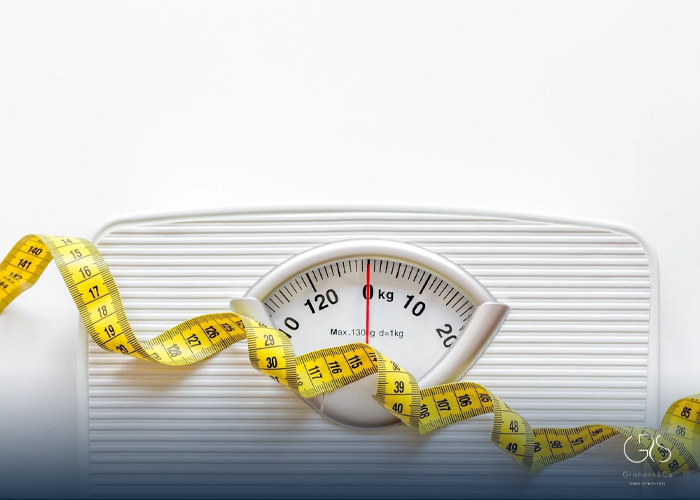In a world where weight management is a common concern, the frequency at which one should weigh themselves has become a topic of interest and debate. From tracking progress to maintaining accountability, weighing oneself regularly is often viewed as a tool for achieving fitness and weight goals. However, it is essential to consider the potential impact on mental and emotional well-being. This article delves into the complexities of how often one should weigh themselves, if at all, while exploring the significance of body weight, the role of Body Mass Index (BMI) and body composition, and the effects of weight monitoring on mental health. Additionally, we will discuss strategies for safe daily weighing, factors influencing weight fluctuations, alternative methods for tracking health, and provide a comprehensive perspective on navigating the intricacies of weight monitoring.
What Does Your Weight Tell You?
Weight is commonly perceived as a numerical reflection of one’s physical well-being, but it is essential to recognize that body weight alone does not provide a comprehensive picture of overall health. While changes in weight can indicate fluctuations in body composition, hydration levels, or dietary habits, it is crucial to consider other factors such as muscle mass, bone density, and fat distribution. Moreover, weight does not account for variations in individual body types, genetics, or metabolic health. Therefore, solely relying on weight as a measure of health may oversimplify a complex interplay of factors affecting one’s well-being.

What To Know About Body Mass Index (BMI) and Body Composition Matters
BMI is a commonly used metric to assess body weight in relation to height, providing a broad classification of underweight, normal weight, overweight, and obesity. While BMI can offer a general indication of health risk based on weight status, it has limitations in accurately assessing body composition and distinguishing between muscle mass and fat mass. Body composition, which refers to the ratio of muscle, fat, bone, and other tissues in the body, plays a more significant role in determining overall health than BMI alone. Understanding the importance of body composition can help individuals focus on building muscle, reducing fat mass, and improving metabolic health, rather than solely aiming for a specific number on the scale.
(I suggest that you go read my article on weight classification.)
How Often Should You Weigh Yourself?
The frequency of weighing oneself varies depending on individual goals, preferences, and psychological well-being. For those with weight loss goals, regular weight monitoring may serve as a motivator and accountability tool. Studies indicate that self-weighing is associated with greater weight loss and maintenance over time, emphasizing its utility in promoting positive behavior change. However, individuals must balance the benefits of monitoring progress with the potential negative impacts on mental health, such as increased anxiety and body dissatisfaction.
If Weight Loss Is Your Goal
For individuals focusing on weight loss, weighing oneself regularly may aid in tracking progress, identifying trends, and making adjustments to dietary and exercise routines. However, it is essential to approach weight monitoring with a balanced mindset, emphasizing overall health and well-being rather than fixating solely on the numbers on the scale. Consulting with healthcare professionals or registered dietitians can provide personalized guidance on setting realistic goals, sustainable weight loss strategies, and healthy behavior changes.
(I suggest you go read my article on weight loss tips.)
If Weight Maintenance Is Your Goal
For those aiming to maintain their current weight, periodic weight monitoring can help prevent gradual weight gain and facilitate early intervention if changes occur. Research suggests that individuals who engage in regular self-weighing are more successful in maintaining weight loss long-term. By incorporating weight monitoring as part of a holistic approach to health maintenance, individuals can stay mindful of their habits and behaviors that contribute to weight stability.
How Weighing Yourself Can Affect Your Mental Health
While weight monitoring can be a valuable tool for some, it is essential to be mindful of the potential impact on mental health. Experiencing fluctuations in weight or becoming fixated on achieving a specific number on the scale can lead to feelings of stress, anxiety, and self-criticism. Research indicates that frequent self-weighing may be associated with negative psychological outcomes, including decreased body satisfaction and increased depressive symptoms. It is crucial to cultivate a healthy relationship with weight monitoring, focusing on overall well-being rather than solely on numbers.
How To Safely Weigh Yourself Daily
If daily weighing is preferred, adopting a few practices can help ensure it is done safely and effectively. To accurately track weight changes, follow these guidelines:
- Consistency: Weigh yourself at the same time each day, preferably in the morning before eating or drinking.
- Minimal Clothing: Wear minimal clothing or weigh yourself in the same attire each time for consistent results.
- Use a Reliable Scale: Use a high-quality scale that provides accurate measurements to track changes effectively.
- Focus on Trends: Instead of fixating on daily fluctuations, pay attention to long-term trends in weight changes to assess progress more holistically.

What Causes Your Weight To Fluctuate?
Weight fluctuations are normal and can be influenced by various factors, including:
- Hydration Levels: Changes in fluid retention can lead to temporary weight fluctuations.
- Food Intake: Consuming a meal high in sodium or carbohydrates can cause temporary weight gain due to water retention.
- Hormonal Changes: Menstrual cycles, stress, or hormonal imbalances can affect weight temporarily.
- Physical Activity: Exercise, muscle gain, or injury recovery may lead to changes in body weight.
Understanding the transient nature of these fluctuations can help individuals maintain a balanced perspective on weight monitoring.
What Are Other Ways To Track Your Health?
While weight monitoring can be informative, there are alternative methods to track health progress beyond the scale, including:
- Body Measurements: Monitoring changes in waist circumference, hip measurements, or body fat percentage.
- Fitness Levels: Tracking improvements in strength, endurance, flexibility, and cardiovascular fitness.
- Nutritional Habits: Keeping a food diary, tracking macronutrient intake, or consulting with a registered dietitian.
- Mental Well-being: Practicing mindfulness, meditation, or seeking support from mental health professionals.
By incorporating diverse metrics and approaches to health tracking, individuals can gain a more holistic view of their well-being and progress towards their goals.
Conclusion
In navigating the complex landscape of weight monitoring, the frequency at which one should weigh themselves is a personal decision influenced by various factors such as goals, preferences, and mental well-being. While weight can provide insights into changes in body composition and overall health, it is crucial to consider additional metrics such as body composition, BMI, and psychological well-being when assessing progress. By approaching weight monitoring with a balanced perspective, focusing on sustainable health habits, and seeking support from healthcare professionals when needed, individuals can cultivate a positive relationship with weight management and overall well-being.
Sources
- Verywell Fit, How to Set and Plan Weight Loss Goals
- WebMD, What to Know About Weighing Yourself
- Psychology Today, Weighing in on “Weighing In”
- National Library of Medicine, Self-Monitoring in Weight Loss: A Systematic Review of the Literature










